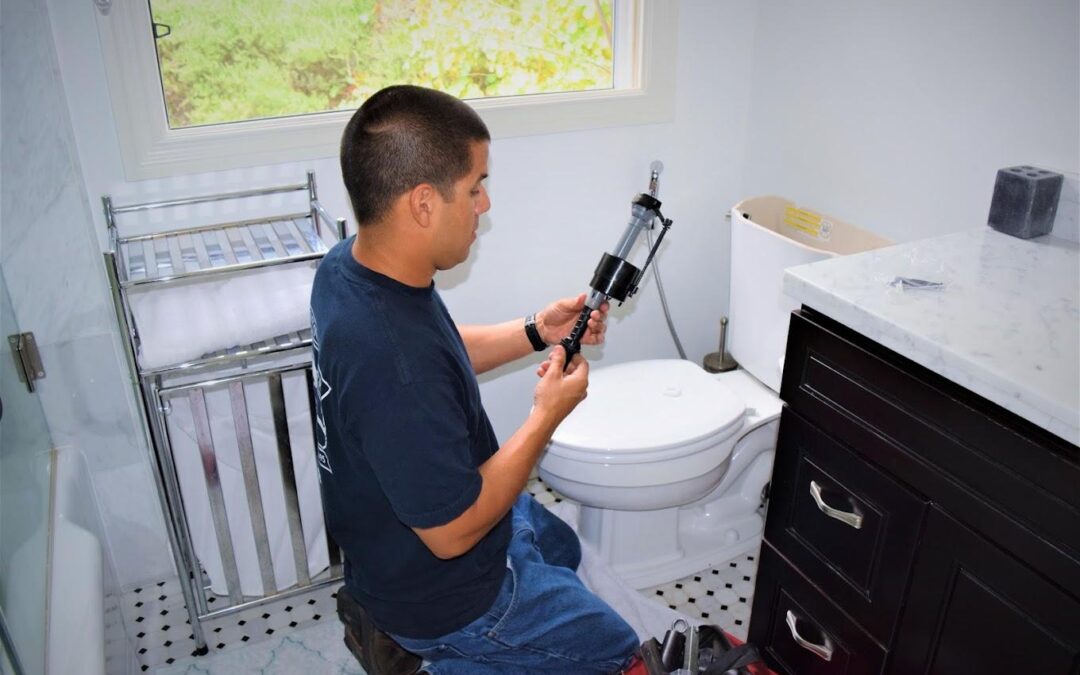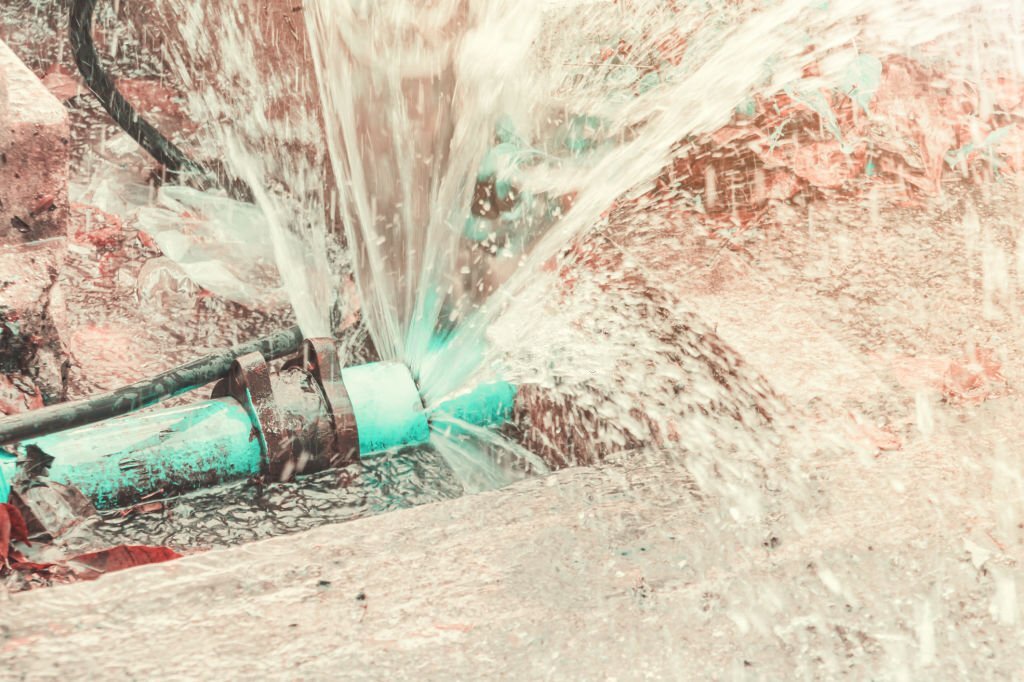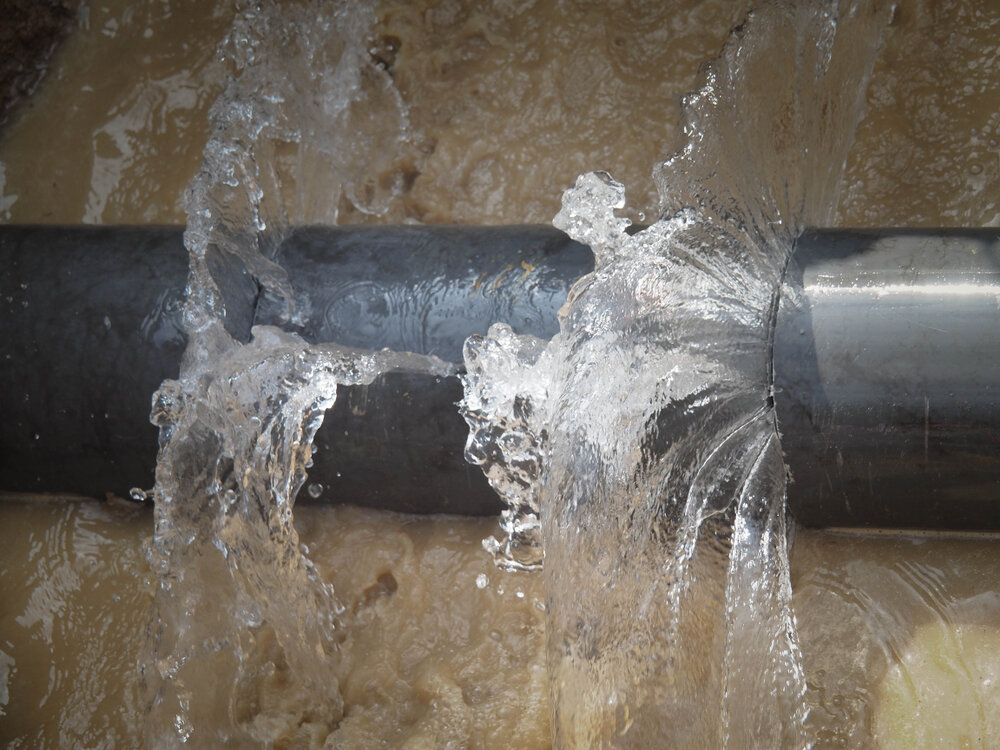Plumbing emergencies can quickly turn our homes into chaotic battlegrounds, disrupting our daily peace in an instant. Whether it’s the alarming sound of a burst pipe or a significant plumbing issue causing flooding, water damage, mold growth, and potential structural problems, these situations require fast action to minimize damage and avoid costly repairs. Facing such crises, knowing how to handle them can make all the difference in salvaging your property.
In this detailed guide, we’ll explore the essential steps needed to tackle plumbing emergencies head-on. Drawing from expert advice and real-life experiences, we’ll provide you with the knowledge and strategies to address even the most daunting plumbing problems. From stopping water flow to addressing safety risks and seeking professional assistance, each step is crucial in protecting your home and restoring peace of mind. So, let’s dive into the world of plumbing emergencies, arming you with the tools and insights to overcome adversity.
Stay Calm and Assess the Situation:
During a plumbing crisis, it’s common to feel a surge of panic. Discovering an issue within the safety of our homes can spark worry and apprehension. However, it’s crucial to stay calm amidst the chaos. While instincts might push for impulsive reactions, maintaining composure is key for making clear decisions. Take a deep breath. Pause to assess the situation calmly, like peering through fog to survey a landscape. Is water gushing uncontrollably from a burst pipe, threatening to flood your home? Are there hidden electrical dangers amidst the chaos, like lurking serpents?
These are the questions that need answers, factors to weigh urgently. Understanding the severity of the problem provides valuable insight into what we’re dealing with. It helps differentiate between a minor inconvenience and a major catastrophe, allowing us to prioritize our actions. So, in the whirlwind of emotions during a plumbing emergency, remember: clarity is your best friend, and remaining calm is the guiding light through the storm.
Shut Off the Water Supply:
During a plumbing crisis, stopping the water flow becomes crucial. Your initial action is like a captain navigating stormy seas. The first step: find the main shut-off valve, which controls water flow throughout your home. This valve, usually in basements, utility rooms, or near the water meter, is essential for preventing further damage. Turn it off swiftly, like closing floodgates to contain a river.
By stopping the water, you create a chance to address the issue, preventing more flooding and limiting damage. This pause isn’t just a break from chaos but a strategic move to regain control. With the water off, you have time to assess the problem and plan. So, in a plumbing emergency, remember: shutting off the main valve is your first defense against more damage, helping you navigate the crisis with clarity.
Address Immediate Safety Concerns:
In a plumbing emergency, it’s not just water damage we need to worry about; hidden dangers like electrical hazards and gas leaks can make the situation even more perilous. Imagine water pooling near electrical outlets or detecting the distinct smell of a gas leak—both scenarios requiring immediate attention to ensure safety. If you find yourself in such a precarious situation, prioritizing safety is paramount.
Assess the risk carefully: is water near electrical sources, or have you detected a gas leak, posing a threat of electrocution or explosion? If so, quick action is essential. If it’s safe, your first step should be to turn off the electricity to the affected area or shut off any gas valve promptly and evacuate the area to ensure safety. This crucial step helps eliminate the risk of electrocution and reduces the potential dangers from gas leaks, safeguarding not only yourself but also your loved ones.
However, if uncertainty surrounds the situation or if the risk feels too great, evacuation may be the safest option. Remove yourself and your family from the premises, seeking refuge in a secure location until professional help arrives. Remember: in a plumbing emergency, prioritizing safety is key. By taking swift and decisive action to address electrical hazards and gas leaks, you can navigate the crisis with confidence and protect yourself and others from harm.
Call Emergency Plumbing Services:
When confronted with a plumbing emergency, the urge to tackle the issue alone might be strong, but it’s vital to acknowledge the limitations of DIY fixes. As soon as signs of a plumbing crisis emerge, it’s imperative to contact a plumber immediately to prevent worsening the situation. Plumbing emergencies often require the specialized skills and tools of a professional plumber. Instead of risking further harm, it’s wise to seek the expertise of a licensed plumbing company like Pro Flow Rooter without delay.
Their professionals are equipped to thoroughly assess the situation, pinpoint the underlying cause, and execute necessary repairs with accuracy and efficiency. However, not all plumbers offer the same level of service, so it’s crucial to select a reputable plumbing service like Pro flow Rooter with a proven track record in handling emergencies. Experience in emergency situations is especially valuable as it demonstrates the plumber’s ability to remain composed and provide effective solutions under pressure. After taking initial steps to mitigate the problem, it’s important to await the arrival of an emergency plumber to ensure a swift and safe resolution. By prioritizing professionalism and expertise, you can address your plumbing emergency promptly and effectively, minimizing damage and restoring tranquility to your home.
Mitigate Water Damage:
Even after you’ve taken the crucial step of shutting off the water supply in a plumbing emergency, residual water can continue to pose a threat to your home’s integrity. This lingering moisture seeps into floors, walls, and furniture, potentially causing extensive damage if left unchecked.
To mitigate this risk, it’s essential to act swiftly and decisively. Arm yourself with towels, mops, or a wet-dry vacuum to remove excess water from affected areas promptly. By absorbing the moisture before it has a chance to penetrate deeper into your home’s surfaces, you can minimize the potential for long-term damage and mold growth.
Additionally, strategically placing buckets or containers under dripping water sources can help capture any residual leakage, preventing it from spreading and causing further harm. Every drop collected is a step toward preserving the structural integrity of your home and safeguarding your belongings from irreparable damage.
Remember, in the aftermath of a plumbing emergency, every action you take to remove excess water is a vital defense against future headaches and costly repairs. So, roll up your sleeves, gather your tools, and take proactive measures to protect your home from the lingering threat of water damage.
Temporarily Patch the Problem:
In the frantic moments following a plumbing emergency, the need for a quick fix may lead you to consider temporary solutions to stem the flow of water until professional help arrives. For instance, if you’re faced with a burst pipe, you might resort to using pipe clamps, rubber patches, or waterproof tape to seal the leak temporarily. These makeshift remedies can buy you precious time and prevent further water damage while you await the expertise of a professional plumber.
However, it’s crucial to recognize the limitations of these temporary fixes. While they may provide a short-term solution to mitigate the immediate impact of the plumbing issue, they are not permanent fixes and should not be relied upon as such. Using pipe clamps, rubber patches, or waterproof tape to seal a burst pipe is akin to applying a bandage to a wound—it’s a temporary measure intended to stop the bleeding until proper medical attention can be administered. Therefore, it’s imperative to contact a licensed plumber as soon as possible to assess the situation and provide the necessary repairs. Remember, while temporary solutions can offer a temporary reprieve, the expertise of a professional plumber is ultimately required to address the underlying cause of the issue and ensure a lasting solution.
Prevent Future Plumbing Emergencies:
After the commotion of a plumbing emergency calms down and you’ve regained control, it’s vital to focus on preventing similar crises in the future. This proactive approach involves taking steps to protect your home’s plumbing system and reduce the risk of future emergencies. Start by scheduling regular plumbing inspections with a licensed professional. These checks can identify potential issues before they escalate, allowing for timely repairs and maintenance.
Also, prioritize servicing and maintaining water heaters as part of your preventive efforts. Actions like fixing leaks and regulating water heater temperature are essential for preventing water heater-related emergencies. Additionally, address any underlying issues contributing to plumbing problems, such as outdated fixtures or corroded pipes. By tackling these root causes, you strengthen your plumbing system against future breakdowns and ensure its long-term reliability.
Furthermore, educate household members on proper maintenance practices and the importance of proactive care for the plumbing system, including servicing water heaters. Teach them to recognize warning signs like leaks or changes in water pressure and promote a culture of vigilance and responsibility. Investing in preventive measures now can save you from future headaches and costly repairs. Remember, preventing problems is far better than dealing with them after they occur, especially when it comes to maintaining a healthy and functional plumbing system in your home.
Conclusion:
In the hectic world of plumbing emergencies, acting fast and being ready are super important. Stay calm, turn off the water, deal with safety concerns, and call for pro help to handle the situation with clarity. Remember to reduce water damage, use quick fixes carefully, talk well with family members, and keep records of damage for insurance. Most importantly, take steps to stop future emergencies by getting regular check-ups, fixing underlying issues, and teaching your family how to take care of the plumbing. With these simple strategies, you can protect your home and feel better about plumbing troubles.



